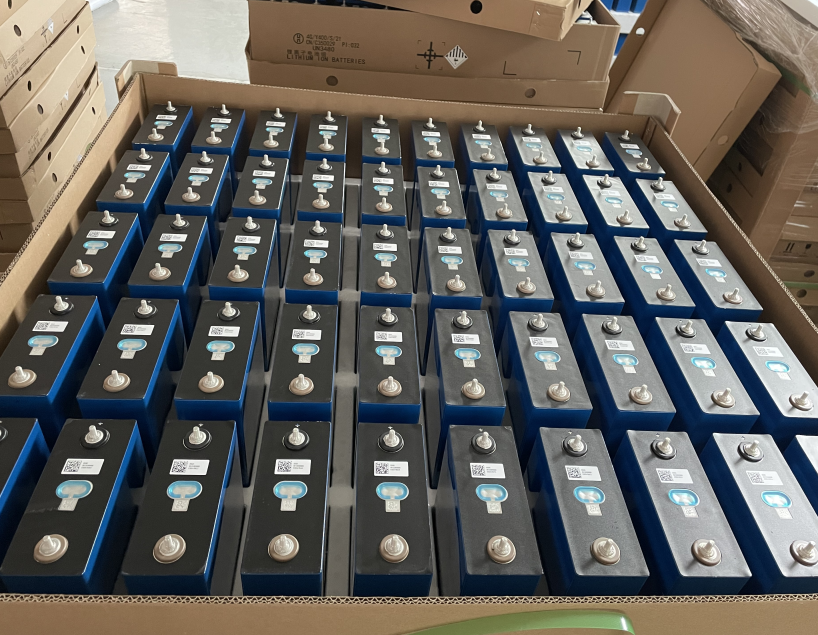Lithium-ion batteries have revolutionized the world of energy storage, and among the various types, Lithium Iron Phosphate (LiFePO4) batteries stand out for their stability, safety, and longevity. This makes them increasingly popular in applications ranging from electric vehicles (EVs) to renewable energy systems. But what exactly sets LiFePO4 batteries apart from other lithium-ion options?

Lithium Iron Phosphate battery is a type of rechargeable lithium-ion battery that uses lithium iron phosphate as the cathode material and a graphitic carbon electrode with a metallic backing as the anode. LiFePO4 batteries have a unique chemistry that offers several benefits over traditional lithium-ion batteries, including improved safety, longer cycle life, and better environmental impact.
Safety
LiFePO4 batteries are known for their superior thermal and chemical stability. They are far less likely to overheat or catch fire compared to other lithium-ion batteries like Lithium Cobalt Oxide (LiCoO2). This makes them a safer choice, especially for large-scale energy storage or electric vehicle applications, where overheating could be disastrous.
Longer Cycle Life
One of the most impressive characteristics of LiFePO4 batteries is their long life cycle. These batteries can last between 2000 to 5000 cycles, significantly outlasting conventional lithium-ion batteries, which typically last around 500 to 1500 cycles. This makes them highly cost-effective over the long run, especially for applications like solar energy storage, where long-term reliability is crucial.
Stable Performance
LiFePO4 batteries provide consistent power output over time, with a stable voltage range during discharge. This makes them an excellent option for critical applications such as emergency backup systems, uninterruptible power supplies (UPS), and medical devices that demand reliability.
Environmental Friendliness
LiFePO4 batteries are more environmentally friendly than their lithium-ion counterparts. They do not contain toxic heavy metals like cobalt or nickel, which are harmful to both the environment and human health. Moreover, the mining of lithium iron phosphate involves fewer ecological risks compared to cobalt mining.
Temperature Resilience
These batteries perform well even in extreme temperatures, making them ideal for use in both hot and cold environments. LiFePO4 cells can operate in a range from -20°C to 60°C, which allows them to function reliably in a variety of climates without significant degradation.
Enhanced Safety: LiFePO4 batteries have a lower risk of thermal runaway, which can lead to explosions or fires in other lithium-ion batteries, especially those using cobalt or nickel.
Longer Lifespan: While traditional lithium-ion batteries may degrade quickly with repeated charge and discharge cycles, LiFePO4 can sustain thousands of cycles without losing significant capacity.
Lower Environmental Impact: Compared to batteries using cobalt, LiFePO4 is a more sustainable choice, with less environmental damage linked to its raw material sourcing.
Cost Efficiency: Though LiFePO4 batteries might have a higher initial cost, their extended lifespan and reduced maintenance make them more economical in the long term.
Electric Vehicles (EVs)
The automotive industry is rapidly adopting LiFePO4 batteries in electric vehicles due to their safety and longevity. Though they offer slightly lower energy density compared to other lithium-ion chemistries, the ability to endure long cycles makes them an ideal choice for vehicles requiring extended battery life.
Renewable Energy Storage
LiFePO4 batteries are increasingly used for solar and wind energy storage, where longevity and safety are paramount. With their long cycle life, they can handle the daily charge and discharge cycles typical of renewable energy systems.
Consumer Electronics
While not as common in small consumer electronics due to their bulkier size compared to other lithium-ion batteries, LiFePO4 batteries are used in larger applications like electric bicycles, scooters, and portable energy storage systems.
Marine and RV Power
LiFePO4 batteries are an excellent choice for marine and RV applications due to their durability and ability to deliver consistent power over long periods. They are highly resistant to shock, vibration, and environmental extremes, making them ideal for off-grid or mobile use.
Limitations of LiFePO4 Batteries
Lower Energy Density: LiFePO4 battery have a lower energy density compared to lithium cobalt oxide (LiCoO2) or lithium nickel manganese cobalt oxide (NMC) batteries, which means they store less energy for the same volume or weight. This can make them less ideal for applications where space and weight are major concerns.
Higher Initial Cost: Although more cost-effective over the long term, the upfront cost of LiFePO4 batteries can be higher than other battery types, which may deter some consumers from choosing them.
Lithium Iron Phosphate battery represent a robust, long-lasting, and safe option in the ever-growing world of energy storage. As technology continues to advance, and the need for reliable, eco-friendly, and efficient energy storage grows, the use of LiFePO4 batteries will likely continue to expand across various industries. Whether powering the next generation of electric vehicles or storing energy from solar panels, LiFePO4 is paving the way for a more sustainable and secure energy future.
Next:40pcs 3.65V 32Ah high-density pouch battery cells shipped to the United States
Previous:DIY LiFePO4 Battery Box: Building a Reliable and Efficient Solution
Contact Person: Miss. Elsa Liu
| WhatsApp : | +8617763274209 |
|---|---|
| Skype : | +8617763274209 |
| WeChat : | 17763274209 |
| Email : | Elsa@lifepo4-battery.com |